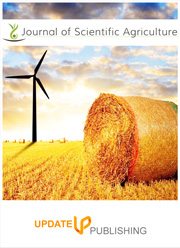Impacts of Rice Importation on Nigeria's Economy
DOI:
https://doi.org/10.25081/jsa.2018.v2.901Keywords:
Consumption, opportunities, policies, production, systems, tariffAbstract
This study critically examined the negative effects of importation of rice on the Nigerian economy. The study also took a look at various import policies embarked upon by the Nigerian government as inconsistency in policy is a major hurdle to long term investment in the rice sub-sector. Nigeria spends billions of Naira on annual basis to import rice with its attendant depletion of the nation’s foreign reserves and this study analyzed that this negative trend can be reversed as there are a lot of opportunities in the rice sector that will not only help the country to achieve self-sufficiency in rice production, but also transform the country from a net importer to an exporter of rice. In order to meet local demand, right investment has to be made in production, milling and grading (especially in the production of excellent quality rice that can replace imported rice), marketing, road infrastructure etc. It is recommended that farm inputs (fertilizers, improved quality seeds, pesticides etc.) should be heavily subsidized by the government at different levels as timely access to inputs can significantly raise the level of production and also lead to an increase in the quantity and quality of yield. Also, there has to be a consistent and business friendly government policy in the rice sub-sector in order to encourage investors.
Downloads
References
2. Food and Agriculture Organization. Nigeria at a glance. www.fao.org/nigeria/fao-in-nigeria/nigeria-at-a-glance/en/. 2017; accessed 22.03.2017.
3. Global Agricultural Information Network. Nigeria’s grain and feed annual report. https://gain.fas.usda.gov/Recent%20GAIN%20Publications/Grain%20and%20Feed%20Annual_Lagos_Nigeria_4-21-2016.pdf. 2016; accessed 22.02.2017.
4. Nwachukwu, I.M., Agwu, N.M. and Ezeh, C.I. Comparative study of consumer purchase attitude of local and foreign rice in Abia State. Proceedings of 42nd meeting of Agricultural Society of Nigeria held at Ebonyi State University, Abakaliki, 19-23 October 2008; pp.764-767.
5. Akpokodje, G., Lancon, F. and Erenstein, O. The Nigerian rice economy in a competitive world: constraints, opportunities and strategic choices. Nigerian rice economy: state of the art. 2001; pp.1-57.
6. United Nations Environment Programme. Integrated assessment of the impact of trade liberalization: a country study on the Nigerian rice sector. Geneva, Switzerland. 2005; pp.1-107.
7. Federal Ministry of Agriculture and Rural Development. The Agriculture Promotion Policy (2016-2020). Federal Ministry of Agriculture and Rural Development, Abuja, Nigeria. 2016; pp.1-59.
8. Premium Times. Nigeria spends $2.41b on rice importation in 3 years – Emefiele. www.premiumtimesng.com/business/187406-nigeria-spends-2-4bn-on-rice-importation-in-3-years-emefiele.html. 2015; accessed 17.04.2017.
9. Federal Republic of Nigeria. Accelerated Rice Production in the Niger River Basin. http://enplan.org/tadashongarice.pdf. 2006; accessed 19.10.2017.
10. Cadoni, P. and Angelucci, F. Analysis of incentives and disincentives for rice in Nigeria. Technical Notes Series, Monitoring African Food and Agricultural Policies, Food and Agriculture Organization, Rome, Italy. 2013; pp.1-42.
11. Ogunsimi, L.O., Ajayi, A., Amire, C.M. and Williams, S. Sustainability of agricultural transformation agenda: the place of rice farmers in Ogun State, Nigeria. Research on Humanities and Social Sciences 2013;3(13):66-78.
12. Rapu, S.C. Evaluating the impact of policies on production efficiency of Nigeria’s rice economy. PhD Dissertation of Walden University, Minneapolis, Minnesota, USA .http://scholarworks.waldenu.edu/cgi/viewcontent.cgi?article=3526&context=dissertations.pdf. 2016; accessed 24.02.2017.
13. Fakayode, S.B. Technical efficiency and factor productivity in upland and lowland rice production systems in Kwara State, Nigeria. PhD Dissertation of University of Ilorin, Nigeria.http://uilspace.unilorin.edu.ng:8080/jspui/bitstream/123456789/121/1/Agriculture_Agric%20Economics_2009_FAKAYODE.pdf. 2009; accessed 19.10.2017.
14. Jamala, G.Y., Shehu, H.E. and Garba, A.T. Evaluation of factors influencing farmer’s adoption of irrigated rice production in fadama soil of north-eastern Nigeria. Journal of Development and Agricultural Economics 2011;3(2):75-79.
15. Federal Ministry of Agriculture and Rural Development. Agricultural Transformation Agenda: We will grow Nigeria’s agricultural sector (Draft for discussion). Federal Ministry of Agriculture and Rural Development, Abuja, Nigeria. 2011; pp.1-105.
16. Alfred, S.D.Y. and Adekayode, A.B. Consumer’s attitude towards local rice production and consumption in Ondo State, Nigeria. Journal of Agricultural Extension and Rural Development 2014;6(7):322-328.
17. Premium Times. Again, Nigeria bans rice importation through land borders. www.premiumtimesng.com/news/headlines/200635-nigeria-bans-rice-importation-land-borders.html. 2016; accessed 05.03.2017.



 .
.